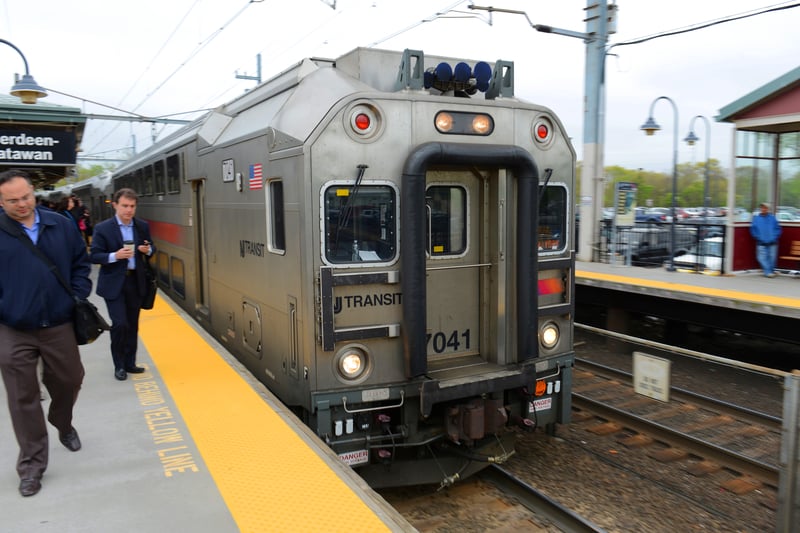BELMAR, NJ – New Jersey Transit (NJ Transit), the nation’s largest statewide public transportation system, is grappling with widespread criticism due to persistent service disruptions, chronic delays, and deplorable train conditions.
Commuters and officials alike have raised alarms over late trains, frequent cancellations, foul odors, filthy interiors, and windows so grimy they obscure views, highlighting systemic issues that have eroded public trust in the agency serving nearly 721,000 daily riders.
The summer of 2024 was particularly challenging for NJ Transit, with thousands of train cancellations and abysmal on-time performance. The majority of cancellations were linked to signal failures and sagging overhead wires, which power trains on the Northeast Corridor, while hundreds more resulted from mechanical breakdowns. Commuters reported significant delays, with some journeys stretching hours beyond schedule.
One rider described a five-hour trip home as “unacceptable,” while another called 2024 the worst year for delays in nearly two decades of commuting.
NJ Transit’s struggles are largely tied to its outdated infrastructure and aging fleet. The Northeast Corridor relies on century-old tunnels and a vulnerable swing bridge, both susceptible to frequent failures, especially during extreme weather.
Overhead wires, which sag in heat and snap in cold, have triggered hundreds of cancellations during heatwaves and winter storms.
Mechanical issues have further compounded the problem, with aging rail cars—some over 40 years old—breaking down at an alarming rate. To keep these trains operational, NJ Transit has resorted to custom-manufacturing parts, a costly and time-consuming process that has failed to stem the tide of cancellations.
Beyond reliability, NJ Transit has faced sharp criticism for the state of its trains.
Passengers frequently report foul odors, ranging from mildew to unidentifiable stench, permeating train cars. Interiors are often littered with trash, with seats stained and floors sticky from spills. Windows, caked with grime and scratches, are nearly opaque, robbing riders of views and adding to the sense of neglect.
“It’s like riding in a dumpster sometimes,” one commuter lamented.
These conditions have fueled perceptions that NJ Transit is failing to maintain basic standards of cleanliness and comfort.
At the heart of NJ Transit’s woes lies a chronic funding shortfall. The agency has struggled to secure consistent investment for infrastructure upgrades, new rail cars, and maintenance. While plans to replace aging trains with modern models are underway, progress has been slow, leaving commuters stuck with unreliable equipment.
Leadership turnover has also hindered reform efforts, with frequent changes in executive roles creating uncertainty about long-term solutions.
As NJ Transit’s failures mount, pressure is growing for systemic change. Commuters, advocacy groups, and lawmakers are demanding increased funding, better oversight, and accountability for service improvements. Proposals include modernizing the rail fleet, upgrading critical infrastructure, and enhancing cleaning protocols to restore passenger confidence.
For now, New Jerseyans continue to endure a transit system that falls short of expectations, with no immediate end to the disruptions and discomfort in sight.
The agency’s leadership has pledged to address these issues, but for the thousands of riders who rely on NJ Transit daily, tangible improvements cannot come soon enough.
With summer coming, New Jersey Transit says it’s improving, but most New Jerseyans aren’t holding their breath, unless they’re on that one train that has that unmistakable odor that can’t be described, or forgotten.

